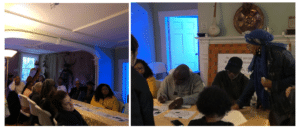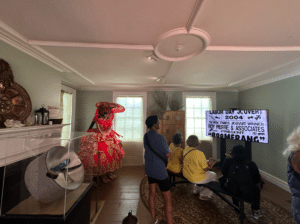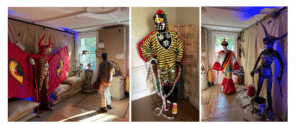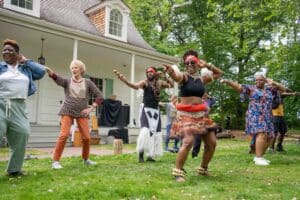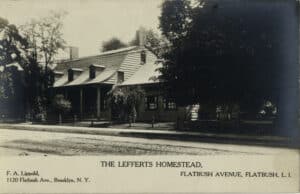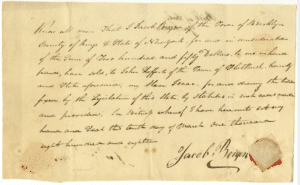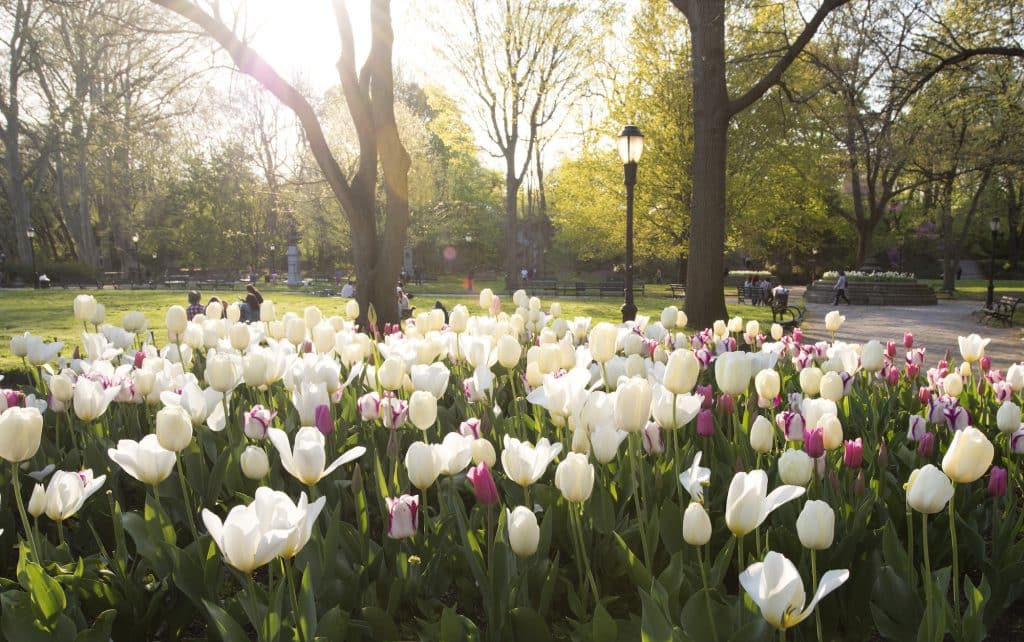Prospect Park Alliance Announces Artist In Residence Adama Delphine Fawundu
February 8, 2024
Prospect Park Alliance has announced the first Artist in Residence at Lefferts Historic House Museum. Brooklyn Artist Adama Delphine Fawundu will create a monumental, site-specific installation informed by new research from the Alliance’s ReImagine Lefferts Initiative, which seeks to focus interpretation at the museum on the resistance and resilience of the Indigenous people of Lenapehoking whose unceded ancestral lands the house rests upon and the Africans enslaved by the Lefferts family. The installation will debut in Spring 2024 in timing with the seasonal opening of the museum, and is funded through a Humanities in Place grant from the Mellon Foundation.
“Prospect Park Alliance’s first ReImagine Lefferts Artist in Residence is a step towards healing deep-seated wounds from our nation’s past,” said Prospect Park Alliance President, Morgan Monaco. “Art is a key medium for storytelling and this installation will help tell the stories of those who have traditionally been silenced. I look forward to park visitors engaging with and reflecting on Delphine’s installation as a form of healing, learning and community building.”
“When the Alliance reached out it was so special because we were both on a specific trajectory. My whole existence is based in this neighborhood. The smell of the grass when it rains in the park means so much to me…I have such a history here. It felt very much like a 360 degree event to connect with the ReImagine team here in Prospect Park,” reflects Artist in Residence Adama Delphine Fawundu on initial conversations with the Alliance.
Fawundu’s connection with Prospect Park is long standing. A born-and-raised Brooklynite, Fawundu has a personal history in the park. Her work with the Alliance was sparked by her 2020 performance piece, In the Face of History Freedom Cape, which was filmed in part in Prospect Park and Lefferts Historic House. Fawundu’s relationship with the park continued in 2021 through Joyful Blues, an installation with BRIC at the Lena Horne Bandshell that combined photographs taken in the late 1990s of Black girls in Brooklyn as well as garra fabric designs from Sierra Leone, West Africa.
Artist in Residence, Fawundu is creating a new site-specific work that is informed by the research Prospect Park Alliance has conducted into the lives of Africans enslaved by the Lefferts family. To date, the Alliance has identified 25 people enslaved by the Lefferts family at the house between its construction in 1783 and the abolition of slavery in New York in 1827. Fawundu’s installation will include 25 textile pieces, each paying homage to the everyday heroism of these 25 individuals, installed across the historic house’s Flatbush Avenue facade.
“Delphine’s work builds upon research to honor the humanity of those whose stories were previously not told,” said Maria Carrasco, Prospect Park Alliance Vice President, Public Programs. “Her vision and work fit seamlessly with the ReImagine Lefferts Initiative in centering the resistance and resilience that enslaved Africans and generations of descendants have embodied throughout history.”
Fawundu’s work is rooted in humanism: “Knowing these names leads us to think about the stories of each person enslaved here, and to see each others’ humanity. We know of course that every enslaved person had intelligence and expertise, but we humanize them further when we ask ‘what else?’ about their story. Who was the scientist? Who was the herbalist? The fact that we tell these stories and the way that we tell them is so important,” says Fawundu.
Fawundu’s work is shaped not only by her personal history with the park and surrounding neighborhoods, but also by her over 10 years of experience as an educator in New York City public schools. “Resistance is so important for the younger generation. Black people have always been resisting from generation to generation, and telling stories that make our youth feel less-than is violent. Stories of the past clearly impact how younger people see themselves. The way we understand the past informs the present and future. This is something I have grappled with throughout my career as an artist and educator.”
About Adama Delphine Fawundu
Adama Delphine Fawundu is a photographer and visual artist of Mende, Krim, Bamileke and Bubi descent. Her distinct visual language centered around themes of indigenization, and ancestral memory, enriches and expands the visual art canon. Fawundu co-published the critically acclaimed book MFON: Women Photographers of the African Diaspora. She is an Assistant Professor of Visual Art at Columbia University. Learn more at delphinefawundu.com.
About ReImagine Lefferts
Prospect Park Alliance has launched ReImagine Lefferts, an initiative to re-envision the mission and programming of the Lefferts Historic House museum, an 18th-century Flatbush farmhouse and New York City landmark, to focus its interpretation and programming on exploring the lives, resistance and resilience of the Indigenous people of Lenapehoking, whose unceded ancestral lands the park and house rests upon, and the Africans enslaved by the Lefferts family. The Alliance seeks to engage the public in thoughtful dialogue about the legacy of enslavement and the exploitation of marginalized communities in Brooklyn and beyond. Learn more at prospectpark.org/lefferts.
About Prospect Park Alliance
Prospect Park Alliance is the non-profit organization that sustains “Brooklyn’s Backyard,” working in partnership with the City of New York. The Alliance was founded in 1987 to help restore Prospect Park after a long period of deterioration and decline. Today, the Alliance provides critical staff and resources that keep the park green and vibrant for the diverse communities that call Brooklyn home. The Alliance cares for the woodlands and natural areas, restores the park’s buildings and landscapes, creates innovative park destinations, and provides free or low-cost volunteer, education and recreation programs. Today, Prospect Park is an international model for the care of urban parks, and one of the premier green spaces in the United States. Learn more at prospectpark.org.
About the Andrew W. Mellon Foundation
The Andrew W. Mellon Foundation is the nation’s largest supporter of the arts and humanities. Since 1969, the Foundation has been guided by its core belief that the humanities and arts are essential to human understanding. The Foundation believes that the arts and humanities are where we express our complex humanity, and that everyone deserves the beauty, transcendence, and freedom that can be found there. Through our grants, we seek to build just communities enriched by meaning and empowered by critical thinking, where ideas and imagination can thrive. Learn more at mellon.org.

